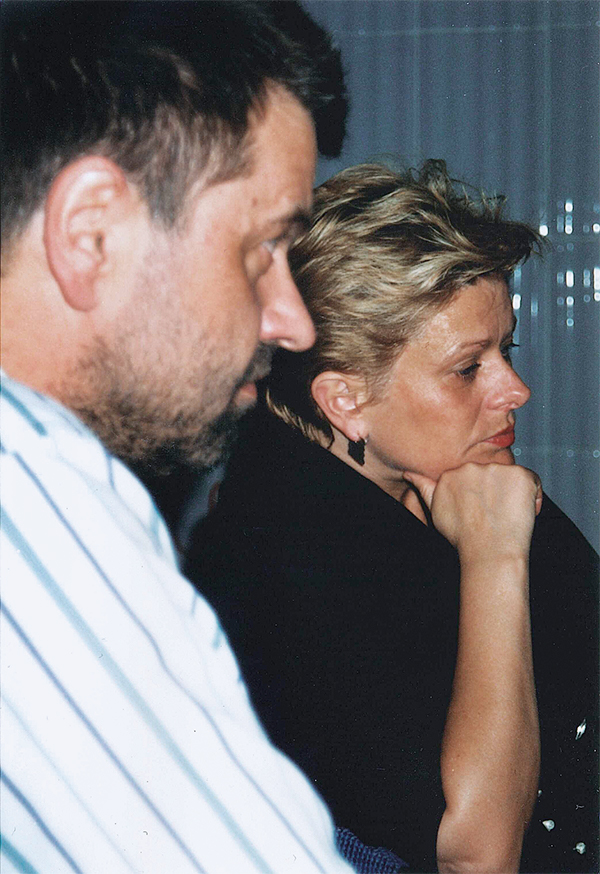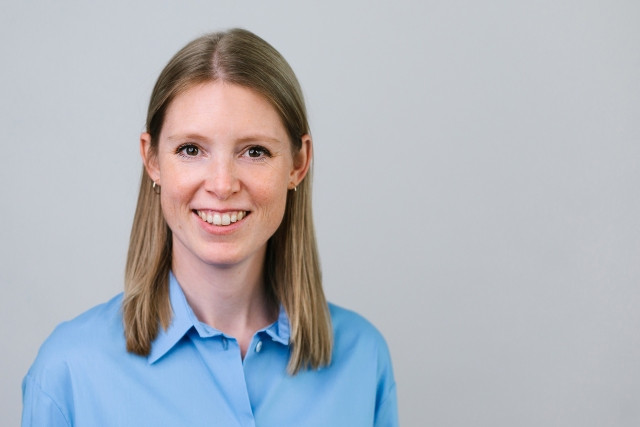Social innovation drafts solutions to pressing social challenges. It provides room for new approaches, gives innovative answers and lays new paths. Social innovation either reacts to a new social question or it solves a known problem by a new practice. The effected group (target group) acts by itself or at least the action has to involve the effected group. In this manner, social innovation creates sustainable, exemplary solutions that inspire others.
Definition of social innovation, Unruhe Privatstiftung
About the prize
SozialMarie is a prize for social innovation awarded to 15 outstanding projects every year. With its first call for applications in 2004 and awarding in 2005 it has been the first prize for social innovation in Europe. Beyond a financial recognition adding up to €55,000, SozialMarie primarily offers a public platform for social innovative projects in Central and Eastern Europe.

Wanda Moser-Heindl and Friedrich Moser
International right from the start, SozialMarie has acquired a solid reputation in Austria, Hungary, the Czech Republic, Slovakia, Croatia and Slovenia. Unruhe Privatstiftung, established by Wanda Moser-Heindl and Friedrich Moser in 2000, manages the prize.
Appreciation for courageous projects
Beyond novelty of the idea, the SozialMarie Criteria for Social Innovation focus on involvement of different groups, effectiveness of implementation and best practice example. SozialMarie awards only successfully implemented projects and is a premium seal of quality for effective social innovation. To promote and disseminate exemplary projects, as well as to advance the discussion about social innovation are SozialMarie’s main goals.
Award ceremony
From all submissions to the annual call, the expert jury nominates max. 35 projects for the prize and consequently selects the best 15 projects to be awarded and announced on May 1 at the Award Ceremony in Vienna. The first three prizes are endowed with €15,000, €10,000 and €5,000; the other twelve prizes are endowed with €2,000 each.
Active patronage
Inspiring personalities overtake the active patronage of awarded or nominated projects of their choice every year. The role of the patrons is an active one, they accompany or support the project over the following year. Patrons announce their chosen projects at the annual award Ceremony on May 1.
Audience Award
The Audience Award gives everyone the chance to vote for their favourite project among each year's nominees. The winner receives € 1,000 for educational purposes. The Audience Award is separate from the jury prizes.
Expert Jury

Barbara Glinsner PhD MSc
Barbara Glinsner works at the Centre for Social Innovation (ZSI) in Vienna, one of the first research institutions dedicated to social innovation. She heads the department "Work and Equal Opportunities" and leads national and international applied research and cooperation projects, as well as evaluations, on various aspects of social innovation and social enterprise (e.g. scaling, impact measurement, social innovation in rural areas, SI ecosystems, and framework conditions for social innovation).
Danijel Baturina, PhD
Danijel Baturina is an academic and doer with a passion for social impact. He is PhD and associate professor at the Department for Social Policy at the Faculty of Law, the University of Zagreb. He has participated in numerous domestic and international projects (HORIZON, Erasmus +, Interreg, FP7, ESF) which promote social change.
Dr. Miroslav Kocúr, PhD
Miroslav Kocúr currently works in The Methodology and Pedagogy Centre (MPC) in Bratislava. His main focus is the support and development of young people who run innovative educational, business and non-profit projects. He was the first director of the C.S. Lewis Bilingual High School in Bratislava. For the last six years worked for LEAF educational organization, since 2021 leads a special course for the Commenius University in Bratislava on transdisciplinary perspective of human science, knowledge and education. He publishes regularly on socio-ethical issues in major Slovak dailies and other media.
Dr. habil. Katalin Teller, PhD
Katalin Teller is university lecturer at the Department of Aesthetics of the Institute for Art Theory and Media Studies at Eötvös Loránd University Budapest. She is working on international and interdisciplinary research projects on cultural techniques, migration literature, urban history and popular culture, recently at the Ludwig Boltzmann Institute for History and Society in Vienna. She regularly translates in the fields of cultural theory and history, as well as journalistic works.
Mag.a Veronika Č. Janýrová, MBA
Veronika Janýrová is project manager at The Vienna Institute for International Economic Studies (wiiw), focusing on the organizational management of international research consortia and the coordination of EU-funded research projects. She is a simultaneous interpreter and has been engaged in numerous film, art, print and cultural productions with an Austrian-Czech dimension as well.
Tanja Tamše
Tanja Tamše is currently an expert in the Mayor's Office of Celje, leading projects in the field of social innovation at the local and European levels. Previously, she worked at the Herman Potočnik Noordung Space Technologies Center, where she managed EU projects in social innovation and contributed to a white paper on public policies for social innovation. She also helped develop national competence centers for social innovation and has led small teams in China, Tanzania, and South Africa in IT, waste management, and tourism.